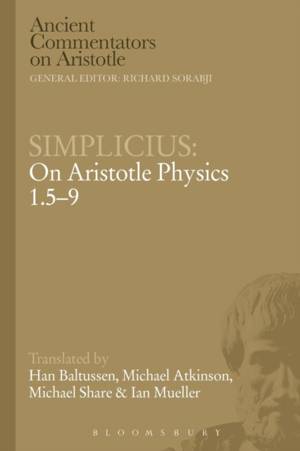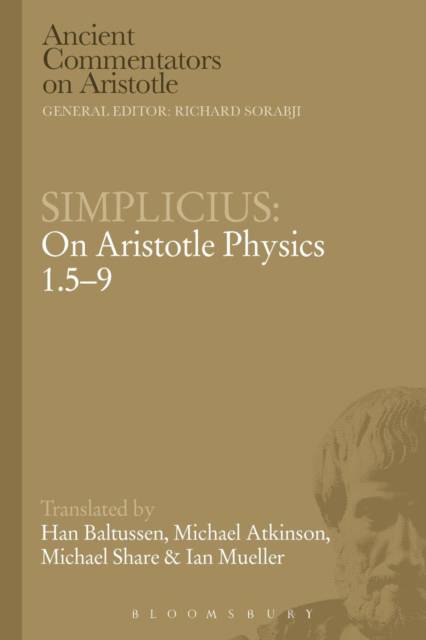
- Retrait gratuit dans votre magasin Club
- 7.000.000 titres dans notre catalogue
- Payer en toute sécurité
- Toujours un magasin près de chez vous
- Retrait gratuit dans votre magasin Club
- 7.000.0000 titres dans notre catalogue
- Payer en toute sécurité
- Toujours un magasin près de chez vous
Simplicius: On Aristotle Physics 1.5-9
Description
Simplicius' greatest contribution in his commentary on Aristotle on Physics 1.5-9 lies in his treatment of matter. The sixth-century philosopher starts with a valuable elucidation of what Aristotle means by 'principle' and 'element' in Physics. Simplicius' own conception of matter is of a quantity that is utterly diffuse because of its extreme distance from its source, the Neoplatonic One, and he tries to find this conception both in Plato's account of space and in a stray remark of Aristotle's. Finally, Simplicius rejects the Manichaean view that matter is evil and answers a Christian objection that to make matter imperishable is to put it on a level with God. This is the first translation of Simplicius' important work into English.
Spécifications
Parties prenantes
- Traducteur(s):
- Editeur:
Contenu
- Nombre de pages :
- 176
- Langue:
- Anglais
- Collection :
Caractéristiques
- EAN:
- 9781472557865
- Date de parution :
- 10-04-14
- Format:
- Livre broché
- Format numérique:
- Trade paperback (VS)
- Dimensions :
- 156 mm x 234 mm
- Poids :
- 254 g

Les avis
Nous publions uniquement les avis qui respectent les conditions requises. Consultez nos conditions pour les avis.





